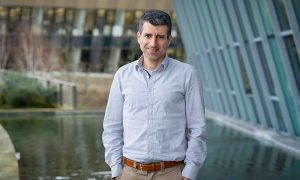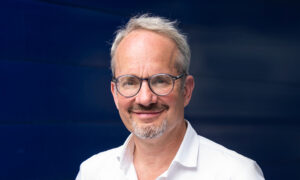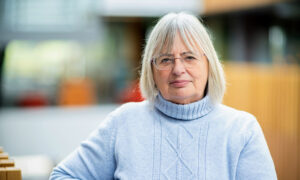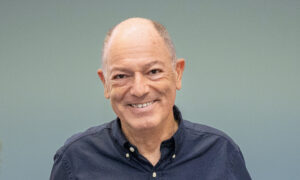
EMBL in Italy: Kristina Havas-Cavalletti
More than 80 attendees gathered at the EMBL in Italy event at the FIRC Institute of Molecular Oncology (IFOM) in Milan for two days of scientific talks, networking and new insights into funding opportunities.
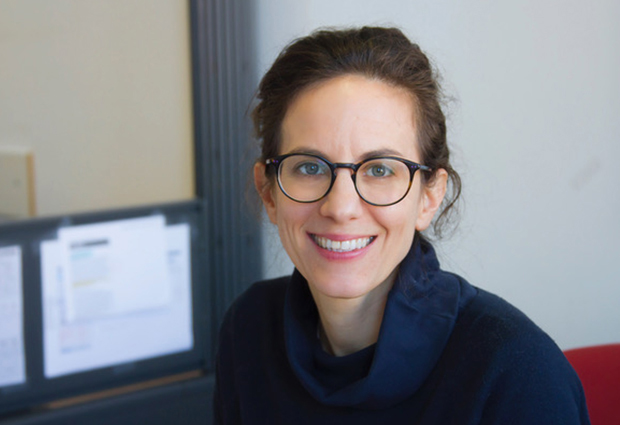
EMBL alumni from all over Italy came together to give impassioned talks about their time at EMBL, as well as their current scientific work, to scientists at all stages of their careers. The Head of EMBL’s Rome site and co-organiser of the event, Phil Avner, brought his entire faculty to raise awareness of EMBL Rome’s activities. The event was also organized by alumni Kristina Havas-Cavalletti, group leader at IFOM, and Thomas Vaccari, Associate Professor at the University of Milan. We met Kristina to ask about her involvement in the event.
What did you work on during your postdoc?
I was a postdoc at EMBL Rome from 2012 until 2016, in the lab of Martin Jechlinger, who is now at EMBL Heidelberg. We studied the biological mechanisms behind the recurrence of breast cancer tumours. The five-year survival rates for breast cancer patients are now very good, but the overall survival really hasn’t seen a vast improvement and many women are still succumbing to recurrent tumours. Using mouse models and organoids we characterised a population of dormant tumour cells which were able to survive cancer therapy. We found that there were changes to these cells’ energy metabolism – the way that they take up and use nutrients – and we could use this to predict how the disease might progress.
What does your work involve today?
In the last 18 months I’ve started my own group at IFOM – the Italian Foundation for Cancer Research’s Molecular Oncology Institute. There are many challenges, but it’s also a lot of fun – I have so much freedom and can really develop ideas with my team. One thing which particularly intrigues me from my work at EMBL is the role of fat molecules, or lipids, in the dormant tumour cell population. We’ve been developing methods to study proteins which interact with lipid droplets in these cells. We also want to better understand the interplay between lipid droplets and mitochondria – the cell’s energy powerhouses. We have collaborations with biophysicists, computational biologists and synthetic chemists, so we can take an interdisciplinary approach.
What was the mission of the EMBL in Italy event?
All of these events aim to strengthen ties between EMBL and scientific communities in member states. We want to enlarge networks and share resources. This year the event was held over two days. Together with Thomas Vaccari, we organised a scientific programme that included a poster session to encourage more scientific discourse. This allowed junior researchers and group leaders from IFOM and the surrounding area to attend and speak about their work – increasing the visibility of both EMBL and IFOM, the host institute. Overall the event highlighted how influential EMBL has been in research careers of so many eminent scientists within the alumni community.
How did it feel to be part of the EMBL in Italy event?
It was a great opportunity to meet alumni from the Milan area. It’s a very dynamic community, with a lot of high-level research being conducted by alumni. There’s also a large contingent of women who have come back to Italy and established themselves as group leaders. They’re doing a fantastic job, so seeing them present their work was one of my personal highlights. It was also an emotional reunion for me. The sense of community at EMBL, and particularly at EMBL Rome, makes you feel part of something bigger and more important than your own research, and that is exciting. EMBL is a wonderful place to conduct research. The interdisciplinary nature of the institute provides fertile ground for us to pursue fascinating and unexpected research topics, and that is incredibly special.
The next EMBL in Italy event will take place on 6-7 May 2019 at Nouscom in Rome and will be hosted by alumnus Alfredo Nicosia. This will be the first time that an alumni event takes place at a company and so the programme will have a strong industry focus.
We would like to give a special thank you to Marco Foiani, Scientific Director of IFOM, for hosting this event as well as his entire team for their support.
